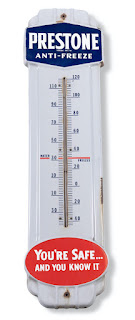I thought I had more time with my dad. He was a young at heart 74 year old with a new house and a new bride, with years of happy times ahead of him. In the wake of his sudden passing, I have come to appreciate the immense impact he left on the world.
As his son, there are three things you need to know about my Dad. He was a teacher, an amplifier, and a rock.
Let’s start with “teacher.” He was both a teacher by vocation and, let’s call it, by “temperament” or by “philosophy.” Dad taught automotive courses at Owens Community College for most of his professional career. He taught students how to diagnose, disassemble, fix, and reassemble transmissions. He also taught a course on electronics. Both of these courses are highly technical in nature.
But to me, he was a different kind of teacher. He certainly taught me all of the typical father-son lessons like: how to ride a bike, how to swim, how to shave, how to drive a car. And when he taught me to drive, there weren’t any tense moments. He was always extremely patient with me.
He also taught me how to be a good and decent person. He instilled in me a strong sense of right and wrong, and he taught me to treat people with respect. All of his good qualities were quietly on display, and they served as valuable lessons to me.
The second thing you need to know about Dad was that he was very chill. Dad was very laid back, and he always seemed to be up for whatever. He listened to whatever music you listen to, he wanted to watch whatever movie you wanted to see.
This laid back approach to life served him well as a teacher, as I just described. But it also meant that he became an “amplifier.” I think Ben’s life is a great example. I’m not sure Dad listened to classical music before Ben was born, but as soon as Ben expressed interest in learning to play the piano, Dad made sure Ben got to his lessons on time.
My life is another great example. I couldn’t afford to pay for college, but Mom and Dad let me live at home while I worked my tail off to get into grad school. Because I was a commuting student, Dad made sure I had a car, and he even paid for gas and insurance. He helped to lift me up. When it was time to move out, he even helped me with that, too!
It’s true of his friends, too. He lifted them up by always being there for them. He was ready to lend a hand if needed. I guess being a teacher and an amplifier kind of go hand-in-hand.
Finally, Dad was a “rock.” Maybe a better metaphor is a “safety net” or a “lighthouse.” I’m not sure what the right comparison is, but he was a mountain of a man. He stood 6 foot three, and weighed around 220 pounds. And when you hug him, it was hard to wrap your arms around him!
I remember, when I was little, Grandpa Hausmann, had this Prestone antifreeze thermometer in his garage that said, “You’re safe…and you know it.” That’s how I felt around Dad. I wasn’t just safe, I knew it!
I think others probably felt the same way around him. I always thought it was so sweet that, whenever Mom and Dad went anywhere, Dad would take Mom’s hand. Mom had low vision, so Dad always made sure she didn’t step off a curb or put herself in danger.
He also drove Mom everywhere. Again, he was teaching me a quiet lesson on how to look out for your significant other. Leslie, my wife, has type 1 diabetes, which means I am sometimes called upon, in the dead of night, to help stabilize her blood sugar. I often think of Dad during those moments.
Even at the end of his life, Dad continued to be a patient teacher. In his last days, he was not angry or depressed about his condition. He taught me that, even in the worst situation, you can still radiate tranquility.
To the people gathered here today: I want to challenge you to be like my Dad. Be a teacher, an amplifier, and a rock.
To my amazing father: I wanted to do so many more things with you…go biking…watch some baseball…learn how to drive fast around a racetrack.
I love you.
I will miss you every day.
I thought we had more time.
[Eulogy delivered at Victory Church, Great Falls, Montana on Friday, June 30, 2023.]









